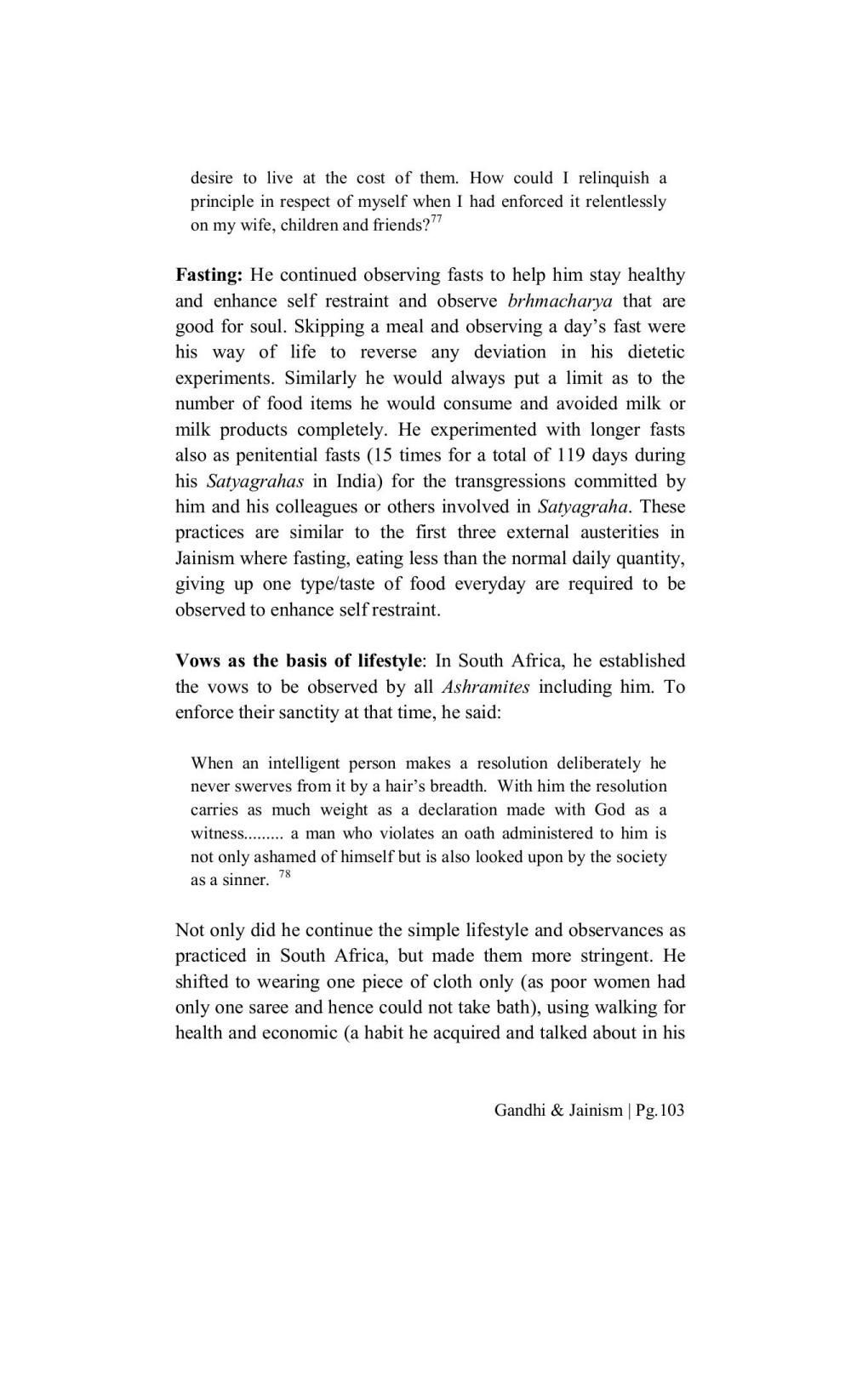________________
desire to live at the cost of them. How could I relinquish a principle in respect of myself when I had enforced it relentlessly on my wife, children and friends?77
Fasting: He continued observing fasts to help him stay healthy and enhance self restraint and observe brhmacharya that are good for soul. Skipping a meal and observing a day's fast were his way of life to reverse any deviation in his dietetic experiments. Similarly he would always put a limit as to the number of food items he would consume and avoided milk or milk products completely. He experimented with longer fasts also as penitential fasts (15 times for a total of 119 days during his Satyagrahas in India) for the transgressions committed by him and his colleagues or others involved in Satyagraha. These practices are similar to the first three external austerities in Jainism where fasting, eating less than the normal daily quantity, giving up one type/taste of food everyday are required to be observed to enhance self restraint.
Vows as the basis of lifestyle: In South Africa, he established the vows to be observed by all Ashramites including him. To enforce their sanctity at that time, he said:
When an intelligent person makes a resolution deliberately he never swerves from it by a hair's breadth. With him the resolution carries as much weight as a declaration made with God as a witness......... a man who violates an oath administered to him is not only ashamed of himself but is also looked upon by the society as a sinner. 78
Not only did he continue the simple lifestyle and observances as practiced in South Africa, but made them more stringent. He shifted to wearing one piece of cloth only (as poor women had only one saree and hence could not take bath), using walking for health and economic (a habit he acquired and talked about in his
Gandhi & Jainism | Pg. 103




